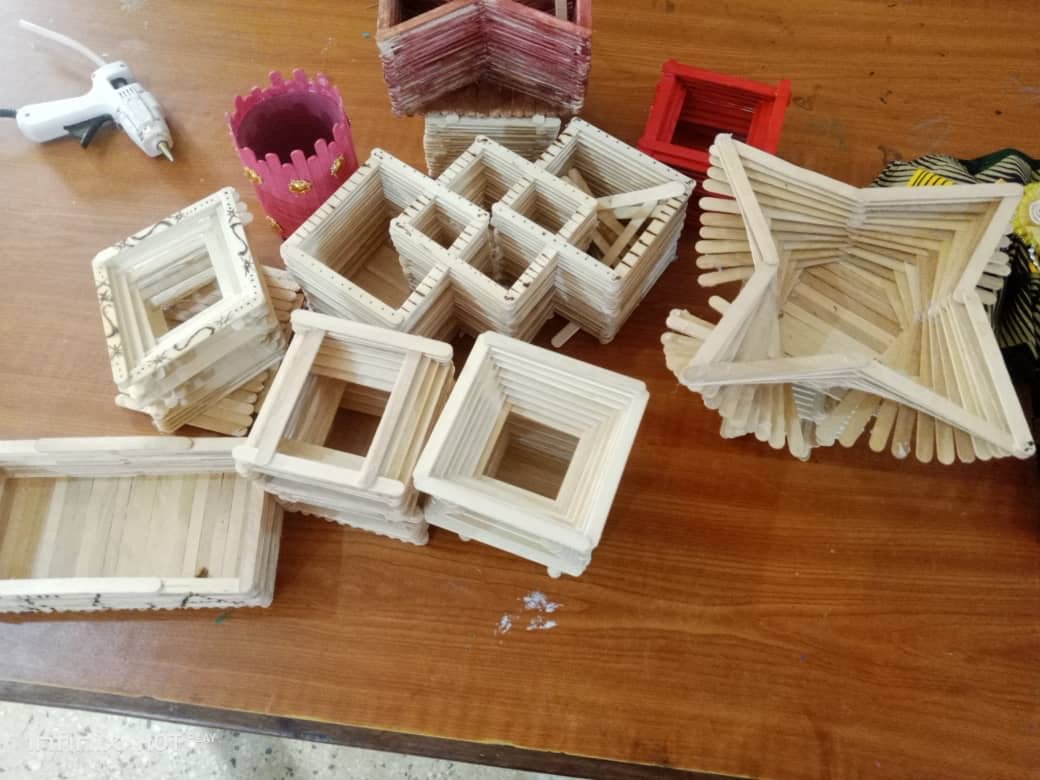Celebrating Micro, Small, and Medium Enterprises Day: SEGA's Hands-On Entrepreneurship Training for Form 3 Students
Micro, Small, and Medium Enterprises (MSMEs) Day, celebrated on June 27th, highlights businesses' critical role in economic development. Entrepreneurship is a valuable skill, particularly for SEGA students, as it offers a pathway to financial independence and stability. In Tanzania, where wages are often low, many individuals seek to supplement their income through small businesses. With good planning and financial understanding, these ventures can lead to higher profit margins, making entrepreneurship a crucial skill set.
Recognizing this, SEGA has integrated entrepreneurship training into the curriculum for Form 3 students. This program is not just theoretical but hands-on and practical, giving students real-world experience through a business club model. This model allows girls to develop and run businesses in relevant local sectors, providing them with a comprehensive understanding of the entrepreneurial landscape.
On May 23rd, 2024, SEGA commenced the annual Form 3 Entrepreneurship Training week which focuses on product development. Thanks to the cooperation and support of everyone involved, the girls had the opportunity to delve into various entrepreneurial skills and learn how to make various marketable products.
Fine Art Creativity projects created by the students during the training.
The Entrepreneurship Training Program at SEGA is designed to be comprehensive, covering a wide range of practical and creative skills. One of the standout modules is Fine Art Creativity, which focuses on home decorations and home/office organizers. This module encourages artistic expression while imparting practical design skills, allowing students to create aesthetically pleasing and functional products.
The Sewing Program module teaches students various sewing techniques, fabric printing and painting, tie-dye, and batiking. These skills are invaluable, providing students with the versatility to thrive in the textile industry. The hands-on experience in sewing enhances their craftsmanship and opens up numerous entrepreneurial opportunities.
Another essential component of the training is the Preparation of Liquid Soap. This skill is particularly relevant in today's market, where there is a high demand for hygienic products. By learning to make liquid soap, students gain the knowledge needed for small-scale production and sales, offering a practical and profitable business venture.
Crafting Clutches and Beaded Bracelets is another exciting module that blends creativity with business acumen. Students learn to produce and market handmade accessories, tapping into the growing market for unique, handcrafted items. This activity hones their artistic skills and teaches them important product marketing and sales aspects.
The Cake Baking and Decorations module is a favorite among students. This popular module equips them with the skills to bake and decorate cakes, providing a foundation for starting a home-based bakery business. The ability to create beautifully decorated cakes can lead to lucrative opportunities, particularly in special events and celebrations.
The training lasted eight days and concluded on May 30th. The students displayed remarkable enthusiasm and cooperation throughout this period, engaging fully with each planned activity.
Overall, SEGA's Entrepreneurship Training Program is designed to equip students with a broad spectrum of skills, from artistic creation to practical business applications. This holistic approach ensures that students are well-prepared to explore various entrepreneurial paths, contributing to their personal and economic growth.
The program is a testament to the importance of nurturing small-scale ventures and cultivating a culture of innovation within the Micro, Small, and Medium Enterprises sector. It highlights how educational institutions can play a pivotal role in preparing young minds for future challenges and opportunities in the entrepreneurial world.
Together, we are shaping Tanzania's future leaders, equipping them with the skills and confidence to support themselves and their families and provide products and services that will impact their communities significantly.


